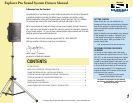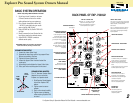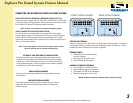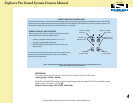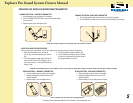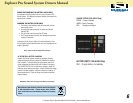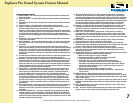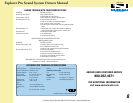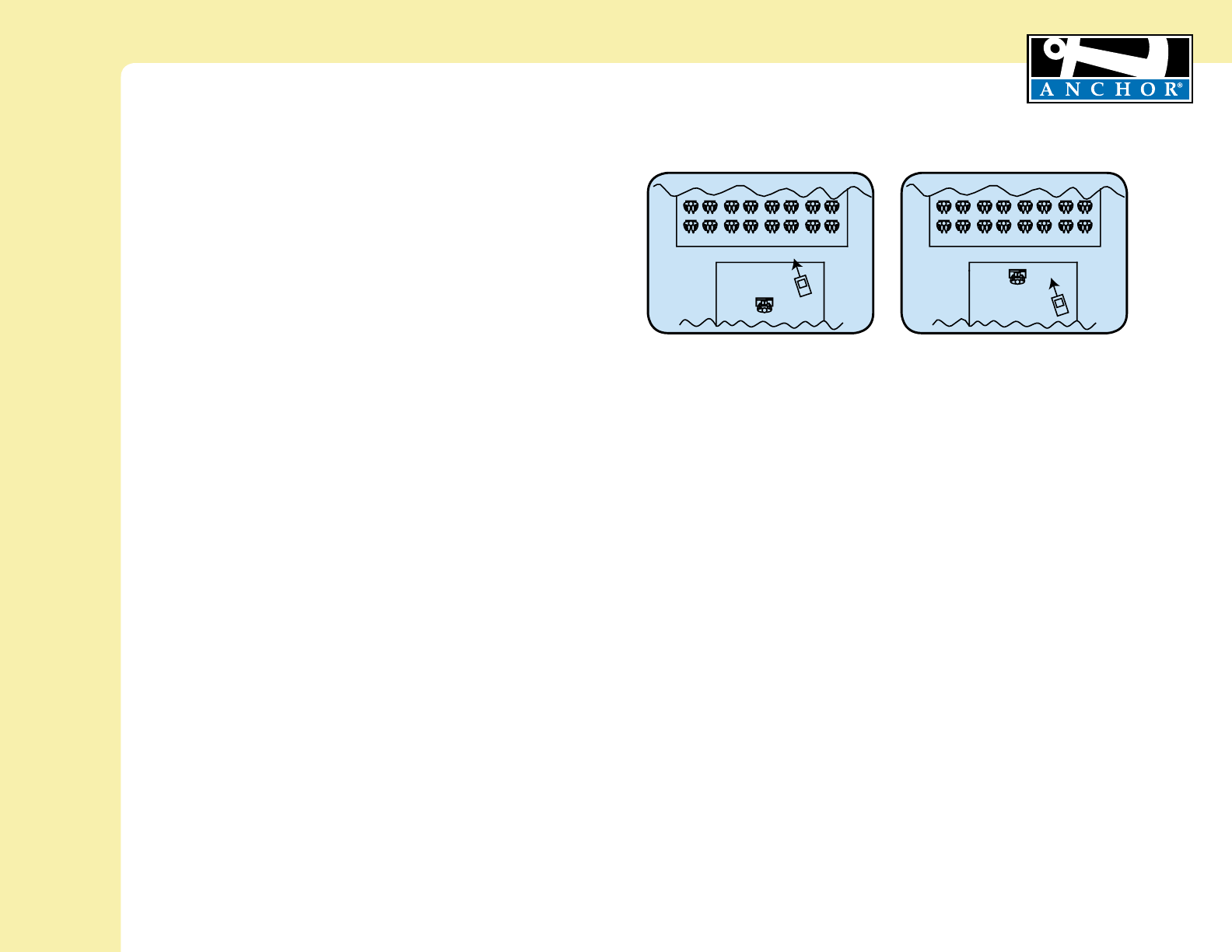
MADE IN USA
SIX YEAR WARRANTY
Explorer Pro Sound System Owners Manual
For System Setup & Operation Videos Visit Our Website: www.anchoraudio.com
3
CONTROLLING FEEDBACK
Feedback, a howling noise or shrill sound, is self-generated by the sound system. It’s caused by
a microphone picking up the sound coming from the speaker and then re-amplifying it. Once a
feedback loop starts it continues until the system is adjusted.
FEEDBACK CAUSES
• Microphone too close, pointing towards
or in front of speaker
• Volume setting is too loud for room
• Sound reflecting off hard surfaces
AVOIDING & ELIMINATING FEEDBACK
• Point microphone in a different direction
• Keep microphone away from the speaker
• Place speaker in FRONT of the microphone
• Reduce the sound system volume levels
CAUTION: Feedback can damage your equipment & may be hazardous to hearing.
CORRECT SYSTEM PLACEMENT WRONG SYSTEM PLACEMENT
CONNECTING TWO OR MORE EXPLORER PRO SOUND SYSTEMS
USING A EXPLORER PRO UNPOWERED COMPANION SPEAKER
(EXP-7501)
Connect one end of a speaker cable
(SC-50NL)
to the SPEAKER OUT jack on the back
of a powered Explorer PRO sound system. Connect the other end to the jack labeled
IN on the back of a Explorer PRO unpowered companion speaker.
NOTE: AC power is not required for an unpowered companion speaker.
USING 2 POWERED EXPLORER PRO SOUND SYSTEMS
This method uses the line-output feature of your Explorer PRO sound system.
Connect a speaker cable
(1/4” phone)
from the LINE OUT jack on the first powered
Explorer PRO to the LINE IN jack on the second powered Explorer PRO. Set the
volume of the second Explorer PRO to maximum so that full volume control will be at
the first or primary sound system.
NOTE: The line-output feature can also be used to send the signal to a sound
system in a different room or a separate recording device.
SETTING UP YOUR EXPLORER PRO SOUND SYSTEM
We recommend placing your sound system between the audience and the
presenter, facing the audience and raised above their heads using a speaker
stand or table. This benefits listeners in the rear of the crowd, minimizes the
risk of overpowering those in the front and helps prevent feedback by keeping
microphone users behind the sound system.
SINGLE SYSTEM PLACEMENT
Place your unit along the least trafficked aisle pointing towards the center
of the audience.
MULTIPLE SYSTEM PLACEMENT
Place units along aisles pointing just off the audience center line, over the
crowds head. With the sound system placed properly it should provide
sufficient coverage.



